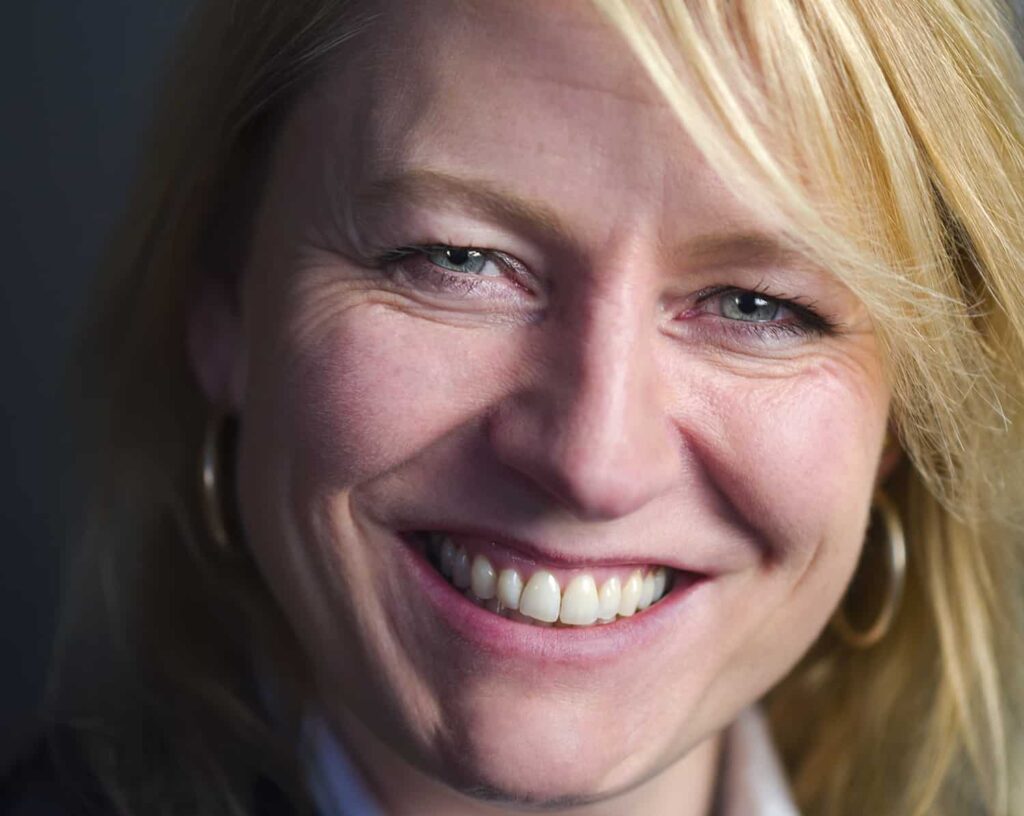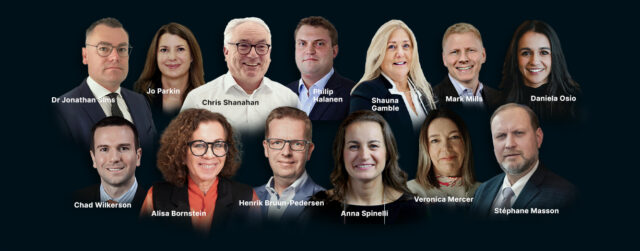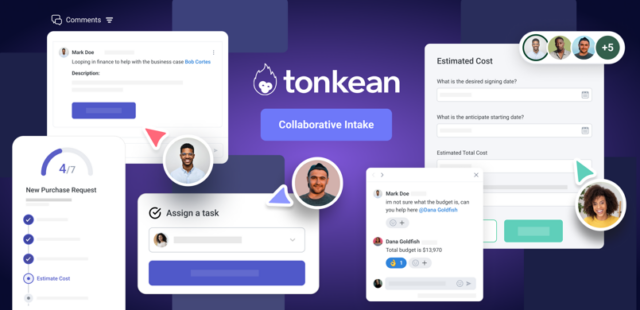Procurement isn’t necessarily an area that’s thought of as particularly human-centric, yet it does go hand-in-hand with the concepts of co-operation and organisation. As such, a touch of humanity can go a long way – and Lizan Molmans, CPO of Eneco, has it in spades.
Driven and enthusiastic, Molmans is the type of person who, in her own words, assumes that “the fastest way to the other side of the lake is straight through it, even if going around it is safer,” when she’s excited about a solution. And creating and carrying out solutions requires openness, communication and self-belief – things which Molmans learned to hone the hard way, through her career.
Like many procurement professionals, Molmans fell into her current role as a mid-career option. Previously, she was in sales – a role in which she was perfectly happy, because she knew the products inside-out and was a real asset to her business. However, the factory supplying those products hit difficulties, one year, and couldn’t deliver them; Molmans found herself in a position where she had to repeatedly tell clients the unpleasant news, meaning they lost faith in the business. “I could not be truly authentic,” she says. “That’s not the way I like to do my job. At that time, I was still very young and naive, but I realised I was not the perfect person for that job. I became unhappy, and complained to a former manager of mine, who was head of procurement. She said, ‘Why don’t you do the same job you’re doing in sales but on the other side of the table?’ That’s when I discovered that procurement was a perfect fit for me.”
After years of varied roles, this one finally clicked. As part of a centralised procurement team, Molmans and her peers looked after procurement for the entire IT business she worked for, and it suited her because it allowed her to buy at a higher level. “Eventually, though, I got a bit stuck on the idea that having a boss who makes choices about how I do my job or how a department is arranged didn’t suit me, because my opinions were different. It was time to take the next step.”
The next step
By her own admission, Molmans didn’t necessarily have the ambition to shoot for top positions, she expected that next step to be a horizontal one. So she moved on, but found that in her next role, nobody cared whether she worked hard or simply did nothing. She moved on again, but this time, she wanted to be in a position where she had influence. “I realised I wanted to improve everything I could see,” Molmans explains. “My circle of concern is very large and my circle of influence is a bit smaller, so I’m always trying to push the latter and show that, when I believe I know better, I will stand my ground if someone disagrees.”
Molmans needed to be part of a business which, in turn, needed her. “I was with this executive search bureau and they asked me what kind of job I was looking for. I said that I needed to be in a management position because I’d had too many bosses where I could have done better. I needed a company on the move, that had a sense of urgency to change. They suggested I approach one of the three Dutch energy companies, and I said, okay, I want to be a manager; I want to split up the company from a procurement perspective and I want to partner from a procurement perspective. I thought that would be a nice challenge, and they agreed.”
Facing the challenge
Molmans spent over 10 years with this business, eventually becoming interested in mediation. She even studied to become a mediator, but then Eneco head-hunted her to lead its procurement function; it was a dilemma, for Molmans, who had been thinking of starting her own company and being a full-time mediator, but she reasoned that she could do that later in life – this was an opportunity that couldn’t be refused.
“Eneco is a very smart, intelligent, strategic company,” she says. “The culture is one that celebrates great planning and innovation.” Eneco, as a decentralised organisation, wasn’t particularly mature, but Molmans saw this as a challenge she could fix for the betterment of the company. “Operational excellence is very important, but it took Eneco some time to really embrace that.”
Now, Molmans has found her place and embraced how who she is affects her role, and vice versa. She has discovered that while she wants to influence and to make big changes, she isn’t driven by the limelight; if she was, she’d have stayed in sales. She is more than content to be making waves in the background, driving innovation from within.
The value of authenticity
“The older I get, the more okay I am with who I am – and that’s very valuable,” she explains. “I’ve become integrated with myself. People feel very liberated when they have honest conversations with me, and they allow themselves to be vulnerable and courageous. This is what, I think, is key for companies to be successful – if a company isn’t vulnerable, if people are holding their cards too close to their chests, how can you fix or change that business? The main purpose of an organisation is to let people co-operate as an organic entity, to create value, to work efficiently. The key to that is vulnerability and openness. You can’t work together if you’re not open.”
It’s easier said than done, of course, and some people struggle with vulnerability to the extent that they become argumentative and defensive, but Molmans does her best to communicate the importance of it to her team and her superiors to make company-wide change. In her experience, with procurement being a fairly male-dominated arena, keeping one’s cards close to the chest is sometimes seen as being strategic and intelligent, where openness may be considered naive – but this is where a little diversity of thought can go a long way. “A company has a lot to gain by putting different people in place who might question the status quo,” Molmans says. “We shouldn’t be trying to compete; we’re meant to co-operate, and competition doesn’t bring profit.”
Molmans firmly believes that it takes courage to be vulnerable, because vulnerability can mean risk. To her, if you’re not being yourself and not being vulnerable, you’re not doing the best job you can do; you’re not contributing to the organisation as much as you could by not being your authentic self.
So, if Molmans had with this extensive knowledge in how to promote a successful, open, efficient organisation through honesty, innovation and openness, early in her career, would the journey have been different? “Yes,” she says, “because I would have felt able to stand up and admit when I wasn’t the right person for something. Our experiences are a combination of environment, society, upbringing and the time period, and I didn’t know anything about what I’ve learned now, back then. But, if I wasn’t a good CPO – if I couldn’t understand procurement and how to move this organisation forward – I wouldn’t be where I am now.”












